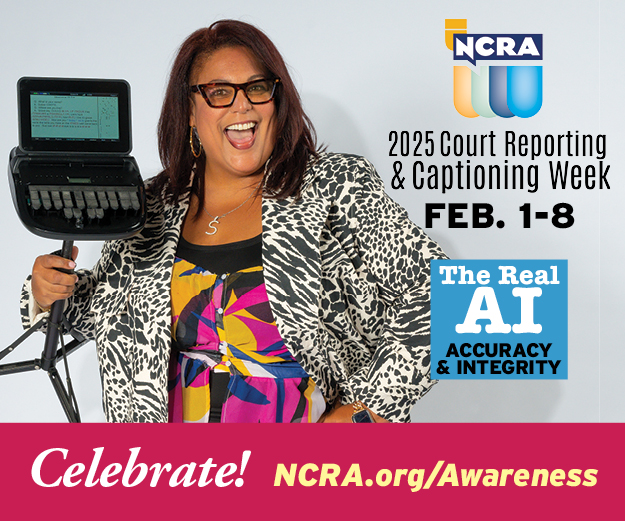How court reporting Professionals Manage Multiple Speakers in High-Pressure Trials
How court reporting Professionals Manage Multiple Speakers in High-Pressure Trials
Blog Article
Understanding the Necessary Duty of Court Reporting in Legal Proceedings
Court reporting is often forgotten, yet it's essential in lawful procedures. Let's check out the essential features of court coverage and its relevance in the lawful landscape.
The History of Court Reporting
Court coverage has a rich background that dates back to old human beings, where scribes utilized numerous techniques to record talked words. By the 16th century, contemporary shorthand systems began to take form, allowing court reporters to produce exact transcripts effectively.
In the 19th century, the development of the typewriter revolutionized the occupation, making it much easier to create clear documents. The introduction of steno machines in the 20th century additionally advanced court coverage, permitting real-time transcription during trials. Today, stenotype reporter play a considerable function in lawful process, ensuring that every word talked in the courtroom is precisely documented. Recognizing this background highlights the importance of court reporting in keeping a reasonable legal system.
The Abilities Required for Court Reporters
As a stenotype reporter, you need solid typing skills to stay up to date with the busy dialogue of lawful process. Your ability to pay attention diligently is just as vital, ensuring every word is recorded properly. Mastering these skills is vital to supplying specific and trusted transcripts.
Efficient Typing Abilities

Solid Paying Attention Skills
Strong paying attention skills are important for court press reporters, as they should accurately capture spoken words in real time. You require to focus intently on the dialogue, grabbing subtleties, tone, and context to ensure every detail is tape-recorded correctly. This ability helps you set apart in between audio speakers, comprehend legal jargon, and follow complex conversations. It's not nearly listening to words; it's concerning comprehending and interpreting them quickly. You'll typically face various accents and speech patterns, so versatility is necessary. Practicing active listening methods can boost your capabilities; for instance, summarizing what you've listened to after conversations can reinforce your skills. Ultimately, solid listening skills make you an indispensable asset in lawful proceedings, ensuring quality and accuracy in the court record.
The Modern Technology Behind Court Reporting
In the domain of legal proceedings, innovation plays a necessary duty in enhancing the accuracy and effectiveness of court coverage. You're likely acquainted with the conventional stenotype maker, but modern stenotype reporter now make use of advanced software that incorporates with these equipments, permitting real-time transcription. This means you can have instantaneous access to the transcript as the process unravel.
Digital audio recording is another technical innovation that's obtaining traction. It records every talked word, ensuring nothing is missed out on. Some press reporters use voice acknowledgment software application, which can aid simplify the transcription procedure, though it still requires human oversight for precision.
Additionally, cloud-based storage allows simple gain access to and sharing of records, enhancing collaboration amongst lawful teams. By leveraging these innovations, court press reporters can give top quality, prompt documents that are important for the legal procedure. Welcoming this technology not just boosts your understanding but likewise ensures integrity in lawful paperwork.
The Court Coverage Process

As lawful process unravel, the court reporting procedure comes to be necessary in recording every detail properly. You'll find that a court press reporter plays an important role by recording spoken words into composed text in real-time. When you tip into the court, the reporter is currently prepared, geared up with specialized tools like stenographic devices and audio recording devices.
Throughout the procedures, the reporter pays attention diligently, keying out whatever claimed, from witness testaments to legal representatives' arguments. You may see them pausing periodically to guarantee clarity or to request for a repeat if something had not been More hints clear. After the session, the press reporter evaluates the transcript, making essential edits for readability.
This whole procedure not just assures a complete record but additionally prepares you for future reference throughout allures or situation testimonials. In the hectic atmosphere of a court room, the court reporting procedure is important for keeping an accurate account of events.
The Importance of Accuracy in Records
While a court reporter's main obligation is to transcribe talked words, the accuracy of these transcripts is vital for the honesty of lawful proceedings. When you're associated with an instance, you depend on accurate paperwork to understand the events and arguments presented. Any type of errors in transcription can bring about misconceptions, misinterpretations, and even wrongful judgments.
Precise transcripts guarantee that every detail is captured, offering a reputable document for courts, lawyers, and juries. This level of information is necessary during appeals or when referencing previous testaments. If a transcript includes errors, it can weaken the entire legal procedure, potentially impacting end results.
Moreover, accurate transcripts support the rights of all celebrations included, advertising justness and transparency. Whether you're a legal representative preparing for trial or a witness showing on your testament, you can trust that the court press reporter's skill in precision plays a significant role in your situation's success.
The Role of Court Reporters in Various Lawful Settings
Stenotype reporter play a vital function in various lawful setups, from tests to depositions and legal hearings. You'll discover that their job warranties every talked word is precisely caught, which is visit this site right here critical for the lawful procedure. Understanding exactly how their duties vary across these atmospheres can highlight their influence on the justice system.
Court Reporters in Trials
In any type of lawful test, you'll locate that stenotype reporter play an essential duty in capturing the proceedings with precision and accuracy. They transcribe every little thing spoken in the courtroom, making sure that every word is documented for future reference. This document comes to be essential for allures, permitting higher courts to evaluate the test's stability. Stenotype reporter have to maintain focus and rate, typically making use of customized equipment to stay up to date with fast-paced discussion. Their work sustains attorneys, judges, and courts by offering a main account of statements and arguments. If discrepancies develop, the transcript works as a reliable resource to clarify what was stated. Eventually, court reporters help maintain the justice system, making sure transparency and responsibility throughout trials.
Depositions and Lawful Hearings
Beyond tests, stenotype reporter also play an important role in depositions and lawful hearings. Throughout these procedures, they capture every talked word, guaranteeing an accurate record of testimonies and discussions. You'll locate that this precision is important, as depositions commonly work as a structure for later disagreements in court. Stenotype reporter offer real-time transcription solutions, enabling attorneys to adhere to along and attend to any kind of concerns quickly. Their work improves the effectiveness of lawful hearings, making it simpler for all events to refer back to the official document. In addition, the transcripts they create can be substantial for allures and various other legal processes - court reporting. Simply put, stenotype reporter are essential in preserving the stability and quality of the lawful record in depositions and hearings.
Future Fads in Court Reporting
As modern technology remains to progress, the future of court reporting guarantees to be formed by cutting-edge devices and methods that boost accuracy and efficiency. You'll likely see increased use expert system and real-time transcription services, simplifying the reporting process. These developments can assist you gain access to records much faster, which can be essential for your legal methods.
Furthermore, integrating video clip conferencing and remote reporting will become extra usual, enabling you to get in touch with court press reporters from anywhere (court reporting). This flexibility can make depositions and hearings a lot more accessible, conserving both time and sources
You'll also see an emphasis on electronic recordkeeping, click here for more info which streamlines the storage space and access of records. With cloud-based solutions, you'll have the capacity to share documents safely and team up with your legal team in real-time.
Regularly Asked Inquiries
What Is the Ordinary Salary of a Court Reporter?
The ordinary wage of a court reporter varies by location and experience, but you can anticipate it to range from around $50,000 to $80,000 annually. Many factors affect this income, including specialization and demand.
Exactly how Do I End Up Being a Qualified Court Reporter?
To become a licensed stenotype reporter, you'll need to complete a court reporting program, pass a qualification test, and gain sensible experience. It's critical to stay upgraded on market requirements and continuing education requirements.
What Kinds of Cases Do Court Reporters Cover?
Stenotype reporter cover various situations, consisting of criminal trials, civil lawsuits, depositions, and adjudication hearings. You'll find them recording whatever, making sure exact documents for courts, attorneys, and parties entailed, capturing every word spoken in legal settings.
Are Court Reporters Required to Have a Degree?
Yes, stenotype reporter commonly need a level or certification in court coverage. Several programs offer specialized training, ensuring you get the skills required for accurate transcription and legal paperwork in various settings.
Can Court Reporters Work From Another Location?

Report this page